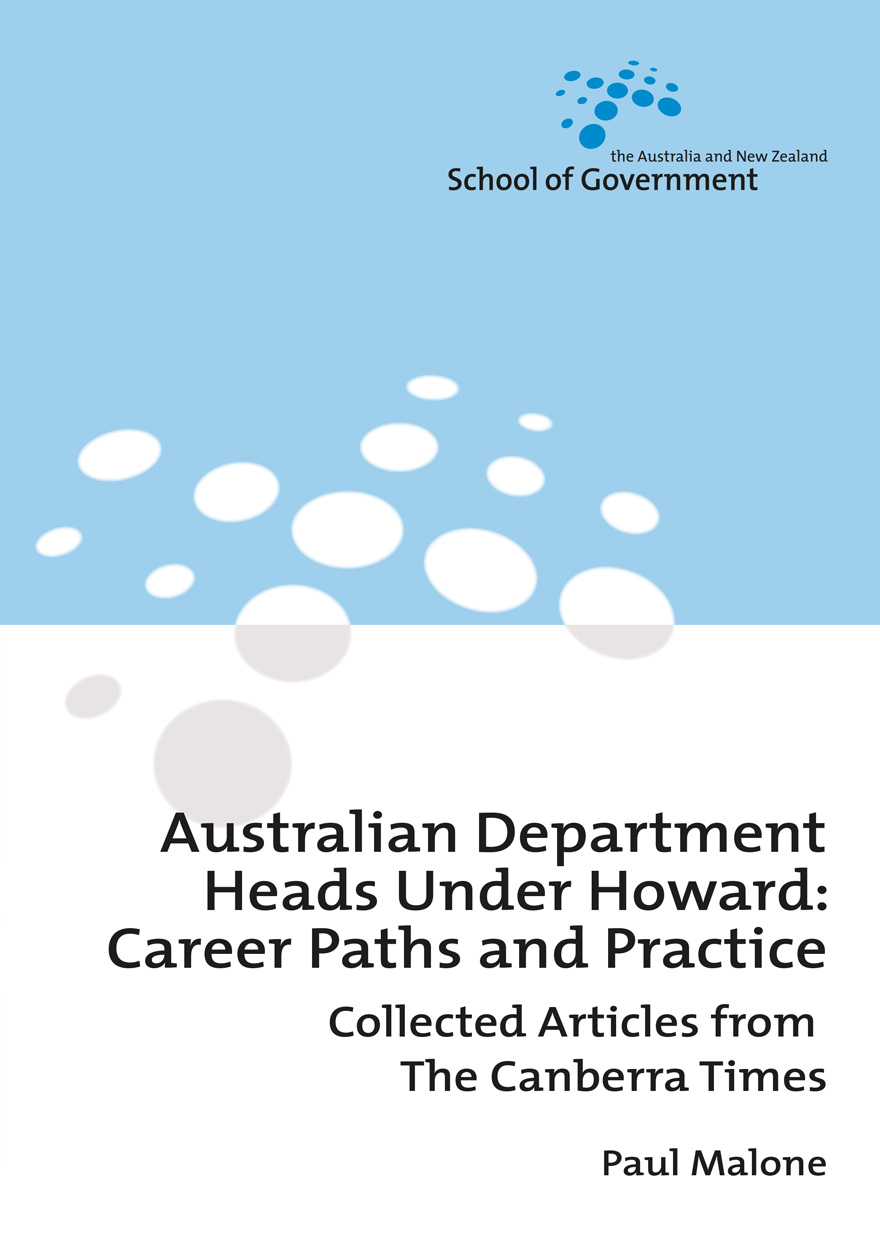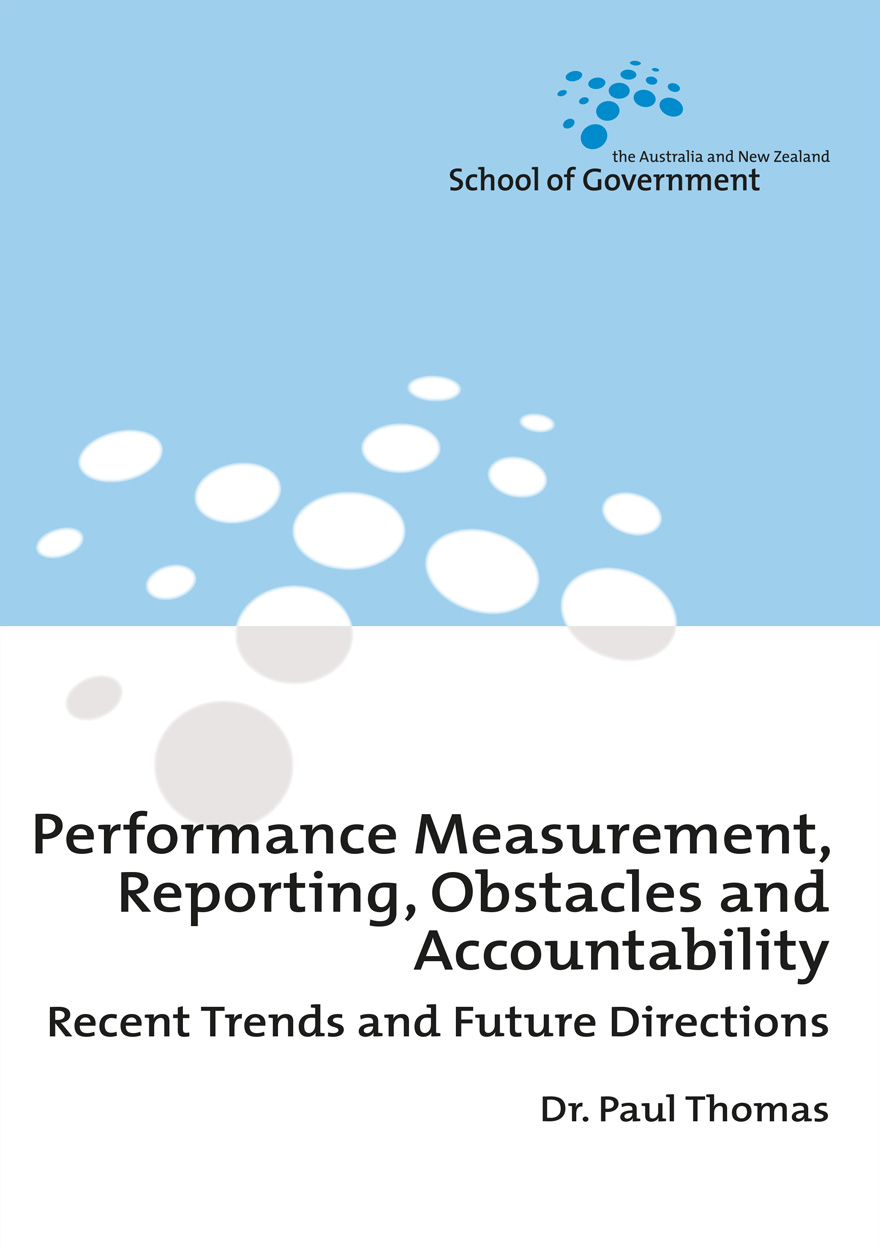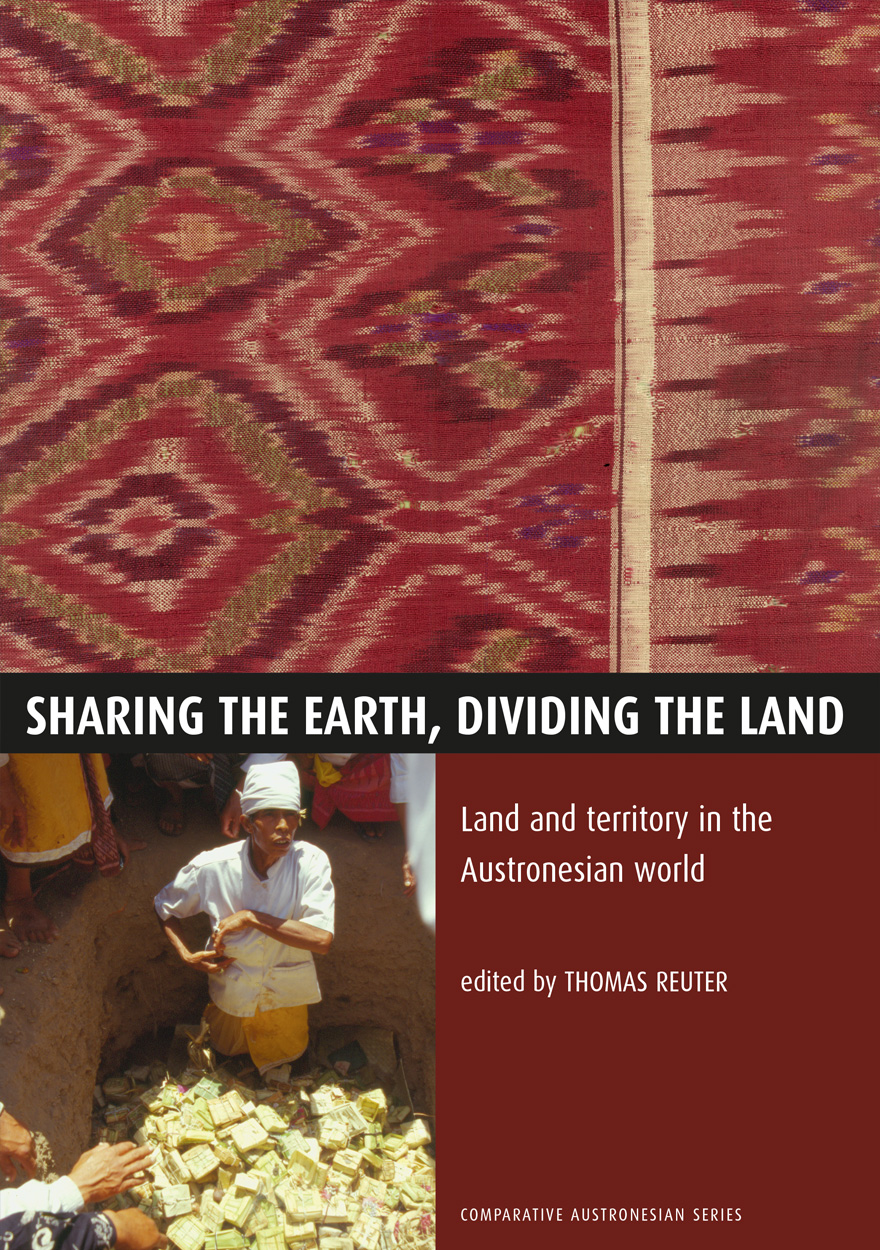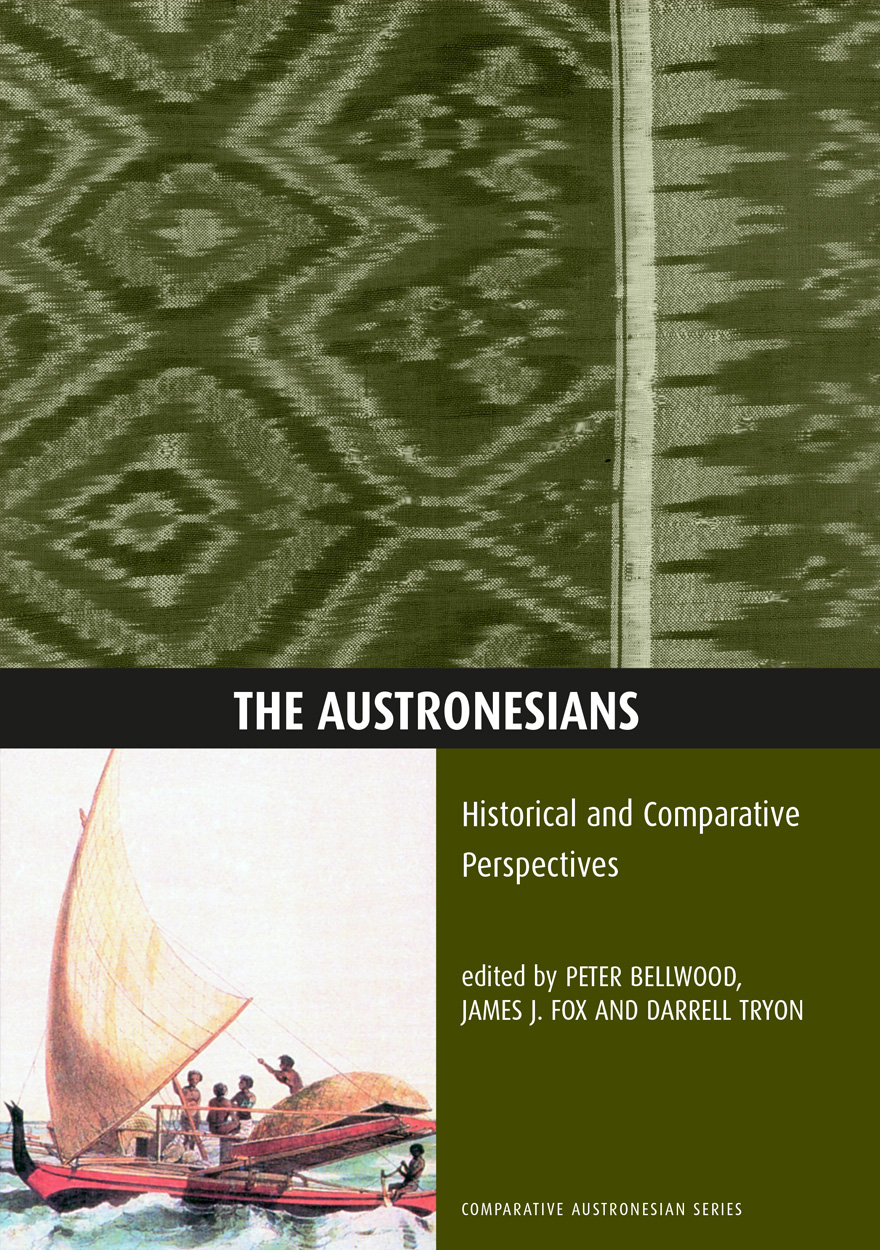Search titles
Displaying results 791 to 800 of 853.

Australian Department Heads Under Howard: Career Paths and Practice »
Collected Articles from The Canberra Times
Authored by: Paul Malone
Publication date: November 2006
The articles in this collection were first published in the Canberra Times between 14 November 2005 and 22 April 2006 in a slightly different format. In some cases two articles were published on the one secretary. These have been combined into one and minor edits and corrections have been made. The articles have not been updated to take account of events since they were first published.

The Islamic Traditions of Cirebon »
Ibadat and Adat Among Javanese Muslims
Authored by: A.G. Muhaimin
Publication date: November 2006
This work deals with the socio-religious traditions of the Javanese Muslims living in Cirebon, a region on the north coast in the eastern part of West Java. It examines a wide range of popular traditional religious beliefs and practices. The diverse manifestations of these traditions are considered in an analysis of the belief system, mythology, cosmology and ritual practices in Cirebon. In addition, particular attention is directed to the formal and informal institutionalised transmission of all these traditions.

Managing Consultants »
A Practical Guide for Busy Public Sector Managers
Authored by: Leo Dobes
Publication date: November 2006
A revised and updated 2016 edition of Managing Consultants is available.
Despite considerable investment in skills development, managers in public sector organisations still exhibit significant deficiencies in contract and relationship management skills and knowledge. This monograph is a practical, user-friendly guide to the benefits, perils and pitfalls of managing outside consultants.
Writing from years of experience in managing consultants in government, Dr Dobes guides on best practice, as well as including advice on what not to do, and how to rectify shortcomings in the process of using consultants effectively.

Australian Political Lives »
Chronicling political careers and administrative histories
Edited by: Tracey Arklay, John Nethercote, John Wanna
Publication date: October 2006
This monograph brings together some of the best practitioners of the art and craft of political biography in Australia. They are simultaneously some of our best scholars who, at least in part, have turned their attention to writing Australian political lives. They are not merely chroniclers of our times but multidisciplinary analysts constructing layers of explanation and theoretical insight. They include academic, professional and amateur biographers; scholars from a range of disciplines (politics, history, sociology, public administration, gender studies); and politicians who for a time strutted the political stage. The assembled papers explore the strengths and weaknesses of the biographical approach; the enjoyment it can deliver; the problems and frustrations of writing biographies; and the various ways the ‘project’ can be approached by those constructing these lives. They probe the art and craft of the political biographer.

Origins, Ancestry and Alliance »
Explorations in Austronesian Ethnography
Edited by: James J. Fox, Clifford Sather
Publication date: October 2006
This collection of papers, the third in a series of volumes on the work of the Comparative Austronesian Project, explores indigenous Austronesian ideas of origin, ancestry and alliance and considers the comparative significance of these ideas in social practice. The papers examine social practice in a diverse range of societies extending from insular Southeast Asia to the islands of the Pacific.

Performance Measurement, Reporting, Obstacles and Accountability »
Recent Trends and Future Directions
Authored by: Paul G. Thomas
Publication date: October 2006
This monograph identifies the ways that ‘politics’ enters into the creation of performance measurement systems, the selection of the official and unofficial aims of such systems, the selection of performance criteria and measures, the interpretation of findings, the responses to such findings and the implications of performance reporting for the accountability of both politicians and public servants. Along the way, both the conditions favouring and the obstacles to successful performance measurement will be highlighted.

Sharing the Earth, Dividing the Land »
Land and territory in the Austronesian world
Edited by: Thomas Reuter
Publication date: October 2006
This collection of papers is the fifth in a series of volumes on the work of the Comparative Austronesian Project. Reflecting the unique experience of fourteen ethnographers in as many different societies, the papers in this volume explore how people in the Austronesian-speaking societies of the Asia-Pacific have traditionally constructed their relationship to land and specific territories. Focused on the nexus of local and global processes, the volume offers fresh perspectives to current debate in social theory on the conflicting human tendencies of mobility and emplacement.

The Austronesians »
Historical and Comparative Perspectives
Publication date: September 2006
The Austronesian-speaking population of the world are estimated to number more than 270 million people, living in a broad swathe around half the globe, from Madagascar to Easter Island and from Taiwan to New Zealand. The seventeen papers in this volume provide a general survey of these diverse populations focusing on their common origins and historical transformations. The papers examine current ideas on the linguistics, prehistory, anthropology and recorded history of the Austronesians. This volume is a publication of the Research School of Pacific and Asian Studies’ Comparative Austronesian Project.

Inside Austronesian Houses »
Perspectives on domestic designs for living
Edited by: James J. Fox
Publication date: September 2006
The eight papers in this volume examine the spatial organization of a variety of Austronesian houses and relate the domestic design of these houses to the social and ritual practices of the specific groups who reside within them. The houses considered in this volume range from longhouses in Borneo to the meeting-houses of the Maori of New Zealand and from the magnificent houses of the Minangkabau of Sumatra to the simpler dwellings of the population of Goodenough Island in Papua New Guinea. Together these papers indicate common features of domestic design from island South-East Asia to Melanesia and the Pacific. This volume is a publication of the Research School of Pacific Studies’ Comparative Austronesian Project.

The Poetic Power of Place »
Comparative Perspectives on Austronesian Ideas of Locality
Edited by: James J. Fox
Publication date: September 2006
This collection of papers is the fourth in a series of volumes on the work of the Comparative Austronesian Project. Each paper describes a specific Austronesian locality and offers an ethnographic account of the way in which social knowledge is vested, maintained and transformed in a particular landscape. The intention of the volume is to consider common patterns in the representation of place among Austronesian-speaking populations.



